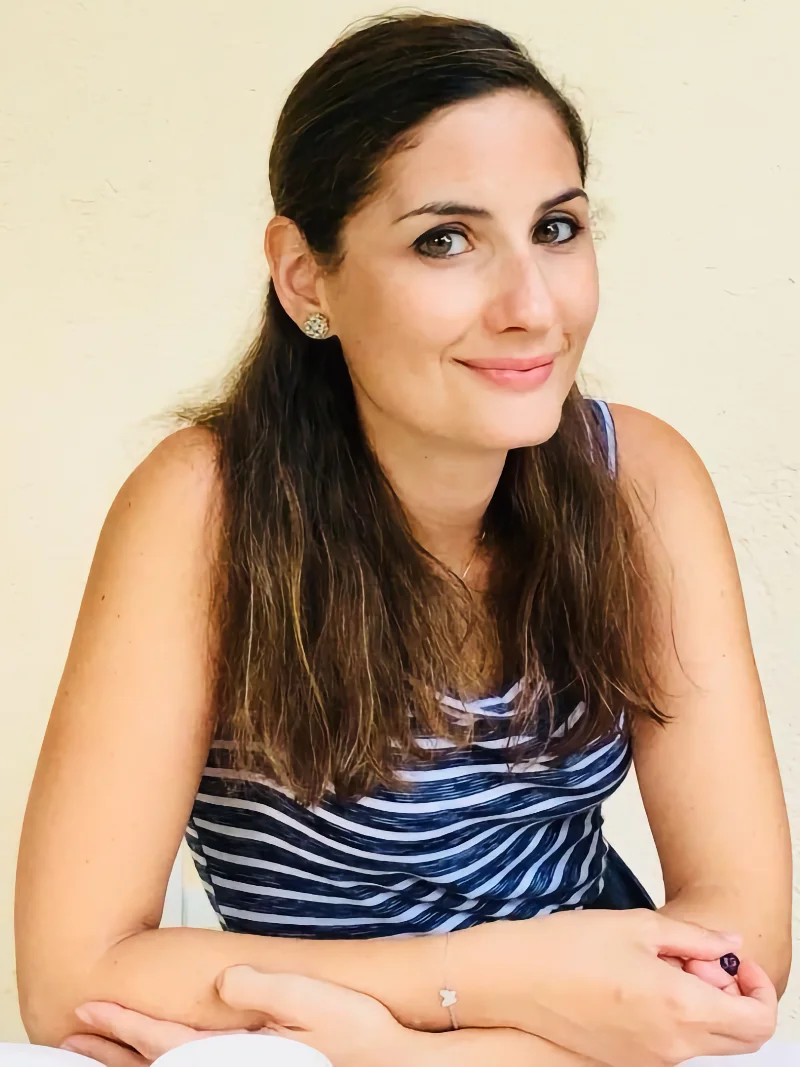
Ms. Alessandra Ceppitelli
Alessandra Ceppitelli
Dr. Alessandra Ceppitelli is a family pedagogue and collaborates stably with the Bianucci Law Firm. Her presence within the team stems from the conviction that family law matters require, in addition to legal expertise, an educational perspective capable of protecting bonds, preventing conflict escalation, and supporting the growth of minors when the family structure changes.
Her work focuses particularly on couples facing separation or divorce and on managing communication between parents and children. Through dedicated interviews, relationship education tools, and operational protocols shared with the firm's lawyers, Alessandra helps parents reorganize daily dynamics, distinguish children's needs from adults' legitimate positions, and build a common language that reduces friction and supports co-parenting.
The approach is multidisciplinary and practice-oriented: active listening, definition of clear and verifiable objectives, selection of communication strategies appropriate to the children's age, planning of consistent routines and rules in both households, and periodic monitoring of results. Each process is personalized and structured in phases, with written feedback to parents and, when useful, a progress report shared with the professionals involved.
The collaboration with the Bianucci Law Firm expresses the firm's attention to pedagogical issues and the care for the human dimension of litigation. The integration of legal and educational expertise allows us to offer families comprehensive support, where the protection of rights is accompanied by the safeguarding of relationships and the well-being of minors.
The word in the family is a bridge that supports growth when the ground changes; learning to walk it together makes the children's journey safer
This principle guides every intervention of Dr. Ceppitelli: from the initial assessment interview to the planning of the process, up to coordination with the school and health networks when necessary. Professionalism translates into methodological rigor, clarity of steps, respect for the times of each family member, and constant attention to the ethics of the helping relationship.
Main Areas of Expertise
Family Pedagogical Consultation
Context analysis interviews, mapping of educational needs, shared definition of objectives, and construction of a personalized intervention plan. The process includes periodic monitoring meetings, with practical guidance on routines, rules, management of emotions, and domestic spaces in both households.
Parent-Child Communication
Education in effective communication during phases of change: how to talk about separation to children based on their age, how to answer complex questions, how to manage transitions between households and critical moments (holidays, anniversaries, new partners). Concrete tools to transform conflicts into dialogue and foster a more stable emotional climate.
Parenting Support in Separations
Programs for couples in the process of separation or post-separation, focusing on co-parenting, coordination of rules, organization of children's time, and prevention of triangulation. The goal is to build a minimal, workable, and verifiable educational pact that reduces pressure on minors and facilitates adult collaboration.
Parental Coordination and Educational Mediation
In high-conflict contexts, structured support for managing daily decisions related to children (school, activities, health) with parental coordination and educational mediation techniques. Development of communication protocols, shared agendas, and procedures for resolving micro-disputes.
Educational Programs for Children and Adolescents
Individual and small group interventions on socio-emotional skills, self-esteem, study methods, and emotion management. Activities aimed at strengthening resilience, autonomy, and the ability to ask for help, in synergy with the family and school when appropriate.
School-Family Alliance
Facilitation of dialogue with administrators, teachers, and territorial services to promote a coherent educational framework. Support in sharing significant information and defining common strategies in the presence of family changes that impact school life.
Training for Parents and Professionals
Thematic meetings, workshops, and counseling sessions on separation and co-parenting, mindful use of digital devices, management of rules and conflicts. Operational materials and worksheets to promote continuity between training sessions and daily life.
Methodology and Operational Modalities
Initial Assessment: two or more interviews to understand family history, educational priorities, and objectives; possible review of documentation shared with the Firm.
Planning: definition of a process with timelines, tools, outcome indicators, and verification methods; development of communication guidelines between parents.
Intervention: meetings with parents and, when indicated, with children; practical exercises, communication role-plays, development of routines and responsibility charts.
Monitoring: periodic reviews and adjustments to the plan; clear and usable written feedback; coordination with school or services upon informed consent.
Ethics and Confidentiality: maximum privacy protection, attention to minors' psychological times, and neutrality towards adults' positions.
Entrusting yourself to Dr. Alessandra Ceppitelli means choosing a professional who combines methodological rigor, care for relationships, and integrated work with the lawyers of the Bianucci Law Firm. Concrete support to transform change into a safer journey, where children can continue to grow feeling seen, heard, and accompanied.